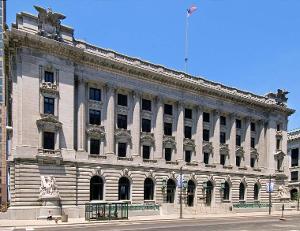ROGER STEARNS
BANKRUPTCY ATTORNEY TEL: 216.521.0200 CH 7 / CH 13
The Chapter 7 Discharge Order
In addition to the issue of Reaffirmation of Debts, the Debtor(s) must inform a Bankruptcy Lawyer about the existence of any judgment liens on real estate. The Debtor is permitted to avoid certain judgment liens in a Chapter 7 case. If judgment liens are not removed ( "avoided") while the Chapter 7 bankruptcy case is open, then the judgment lien remains attached to the Debtor's real estate after the bankruptcy Discharge Order is issued by the Court.
The Bankruptcy Discharge Order is the Order issued by the United States Bankruptcy Court which essentially wipes out the Debtor's legal liability to pay certain debts. Not all debts can be discharged. Certain income taxes, all employee payroll taxes, damages for intentional acts, judgments for conversion of property or funds, damages for breach of fiduciary duty ( such as a Trustee, or Executor / Administrator of an Estate), debts incurred within 90 days of case filing, and other debts not mentioned here cannot be discharged. In some instances, either the creditor or the Debtor is required to file an Adversary Complaint under 11 U.S. Code, Section 523 requesting that the Court determine whether a debt is discharged. It is important to consult with a Bankruptcy Attorney who has the experience and knowledge of these issues to handle them appropriately and to the client's best advantage under the law.
It is important to note that judgments and pre-existing liens remain attached to property. Even though a Debtor is discharged as to a home or auto loan, the lender can enforce its rights under the security agreement to seize ( and sell) the collateral securing the loan. You should always discuss secured claims with your Bankruptcy Lawyer from day one. You will need to determine whether you would like to keep this kind of property, or surrender it to the lender.
Once the Discharge Order is issued, the Debtor(s) is/are free from any future claim by the creditor. The debts that are discharged do not cause the Debtor to incur any tax liability for a "forgiven" debt, such as when a debt is settled for less than what is owed. Bankruptcy Discharges are tax free transactions, and this is usually why a bankruptcy case filing is the superior method of obtaining a fresh financial start.
